As a community-based visual journalist, I have spent more than 40 years documenting the good, the bad, and the unexpected.
Lately my focus has been with members of San Diego’s unhoused community, sharing their stories and images first in various newspapers, and more recently on my website www.talesofthestreets.com . I have my favorite stories, and I have many friends who are still on the streets with whom I communicate regularly.
Lately, I have taken a more concentrated focus on the situation for the women, and mental health; specifically how they navigate their unique challenges.
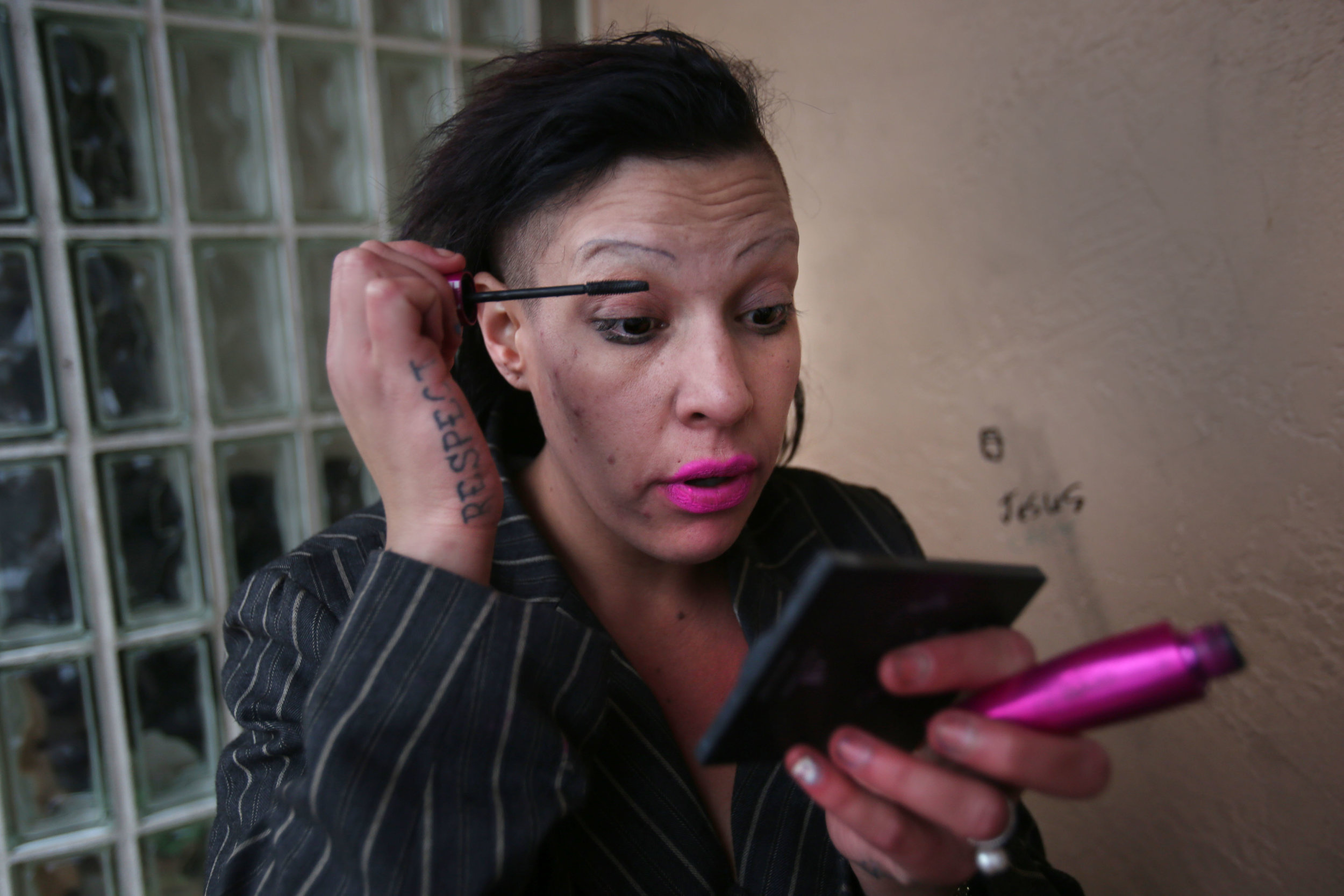
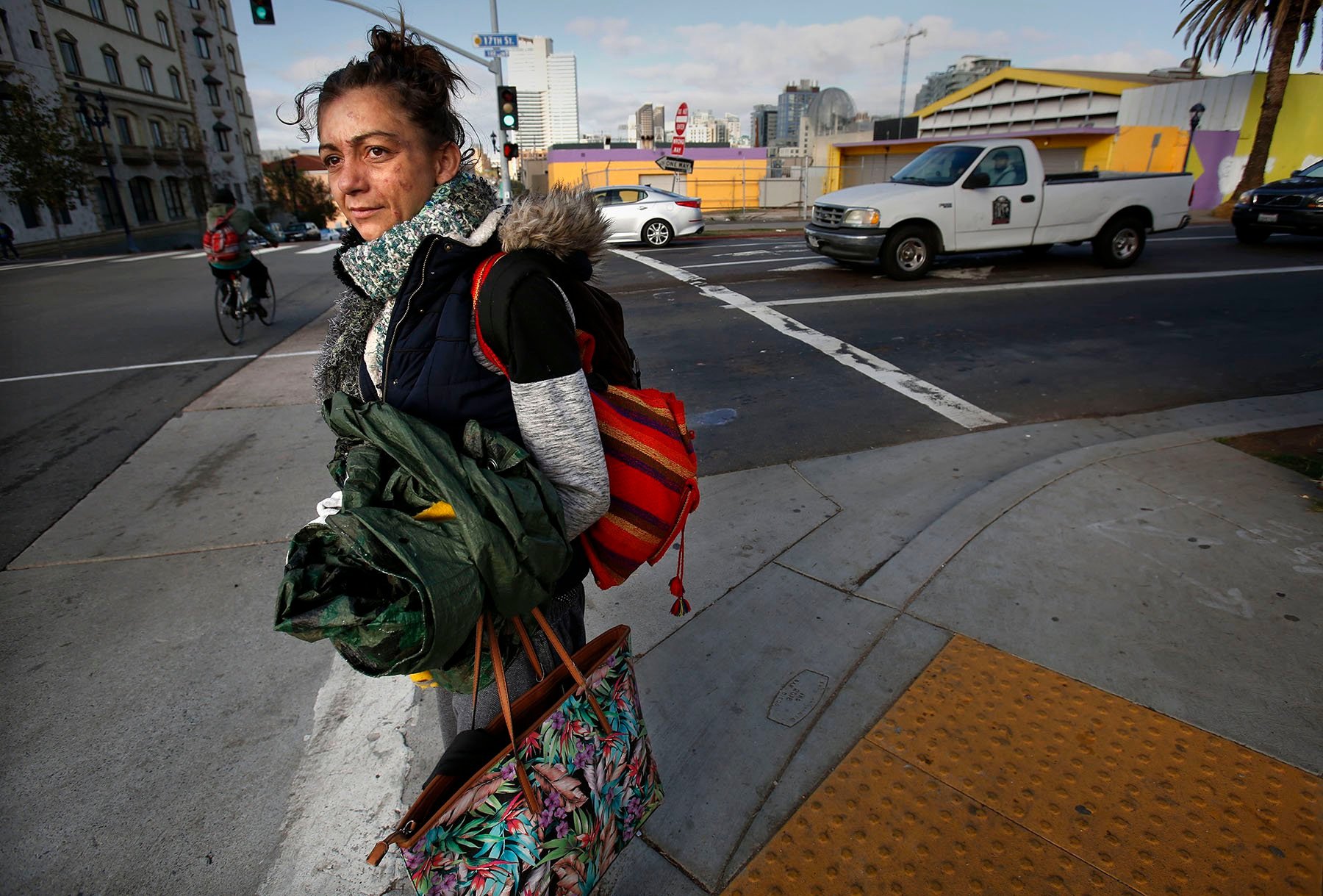
Brittany has a degree in Early Childhood Education, a proud mother of a bright two-year-old, a boyfriend with skills in welding and tile work. She's cheerful and energetic. She's also addicted to heroin and meth. She battles with the two strong forces in her life: a desire to be a good mother to the son who loves to go with her on day trips to the beach or for ice cream, versus the desire to be with her boyfriend, who has trouble kicking the habit.
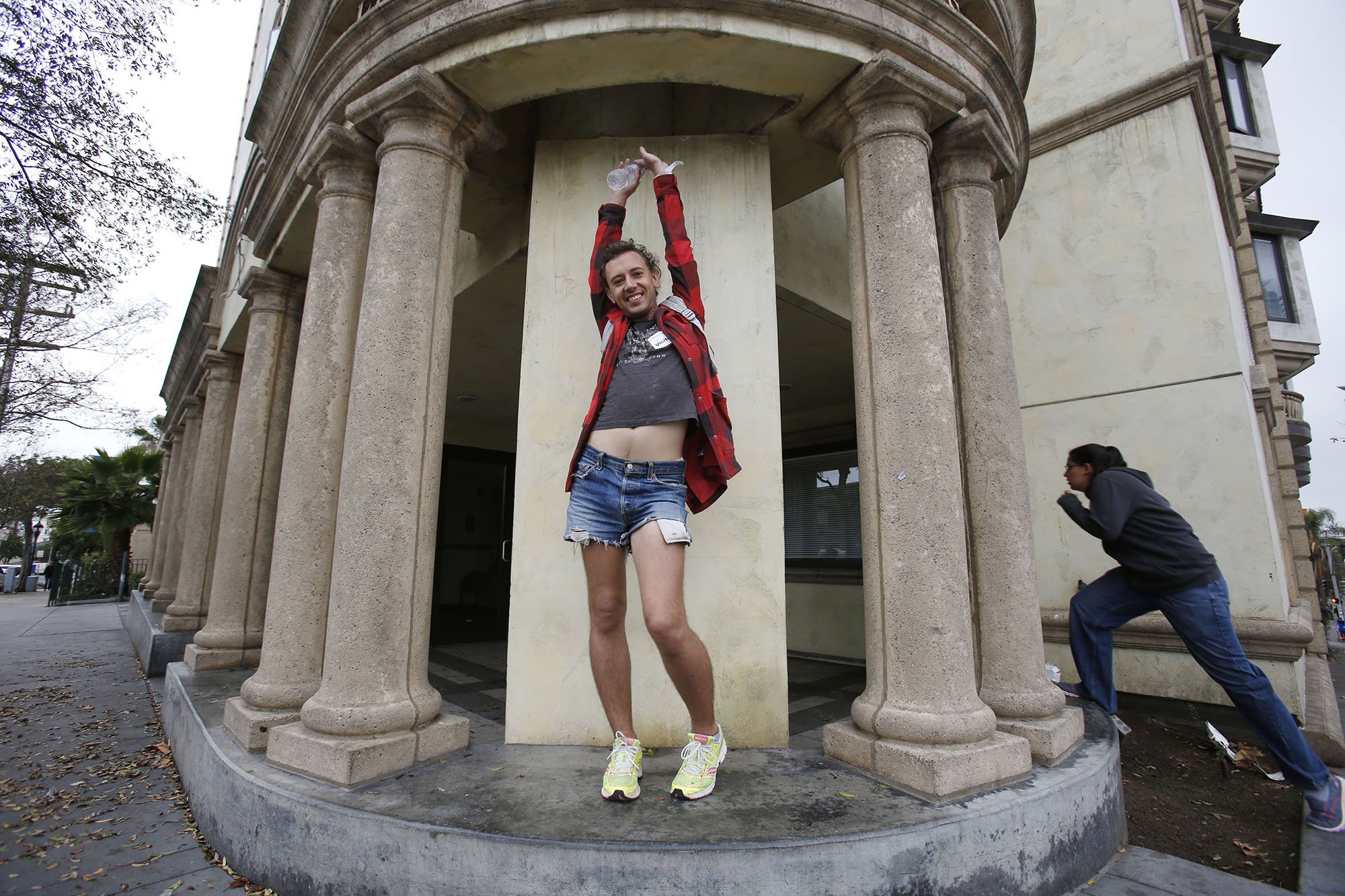
April Sundance, 30, started life as a boy in Ukraine when it was part of the Soviet Union. In a classic tale of betrayal, mafia bosses and strong personalities in the family, Sundance fled Ukraine like her father had done, only she fled to the U.S. where she hoped to fulfill dreams of becoming a transgender person, learning about the drug culture and becoming a Hollywood movie producer. On the rainy streets of San Diego at the beginning of a new year, she is two-thirds of the way there. Having relapsed into using meth for the first time in four months, she is freshly released from a mental health facility, and has an appointment with a crisis house, in her effort to stay sober this time.
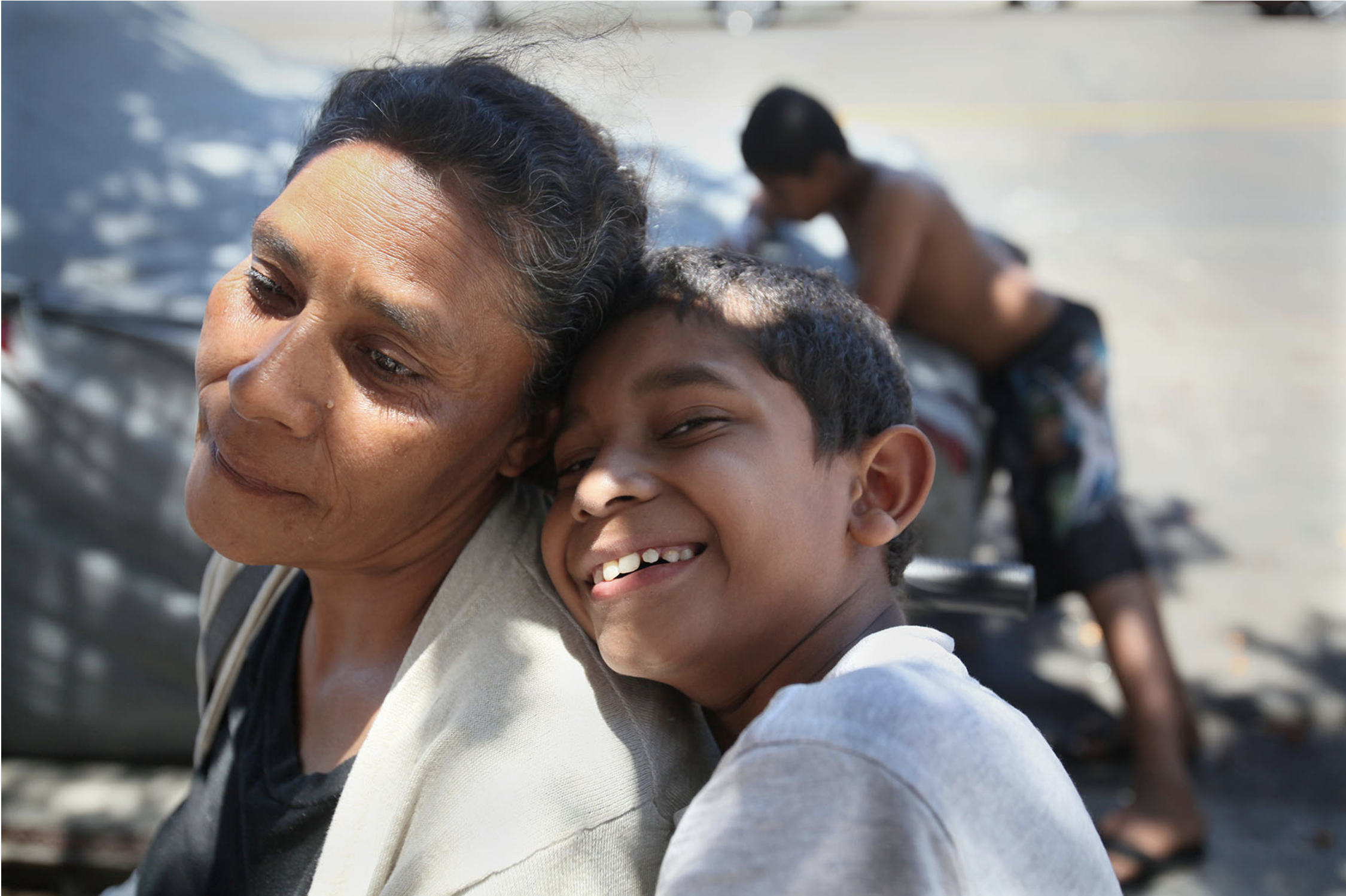
Escaping a husband who beat her and worked for a drug cartel in Honduras, Vilma wanted better for herself and her two sons. She brought Manuel, 10, who has MS, in his wheelchair, and Julio, 14, two lively, fun-loving boys, by bus through Mexico to America’s doorstep, selling water and food along the way. In Calexico she asked for asylum. After five long days in detention, they were granted asylum and found their way to the streets of San Diego. Informed by her experience with cartels, she was careful about where she set up her tent and kept a watchful eye on the activity at the street corners.
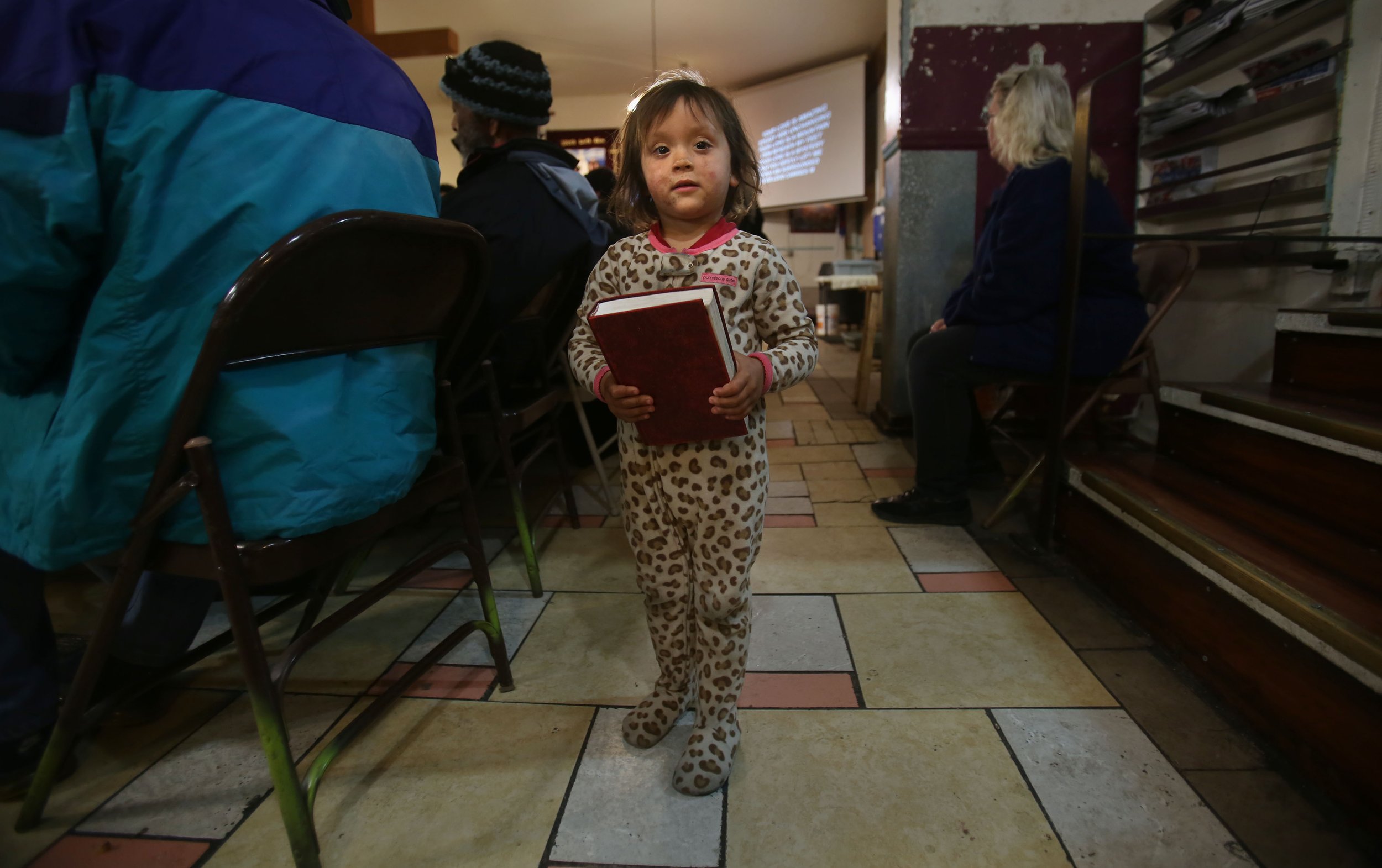
A child carries a Bible while waiting for the evening meal, after which tables will be moved to create space for mattress and blankets. The homeless seeking shelter from heavy winter rains and winds have few options since seasonal temporary shelters fill up fast and many do not take children. A few non-profit or privately run churches like God's Extended Hand offer cots mostly for women and children. This night the blankets were moldy and scratchy and parents worried about lice.
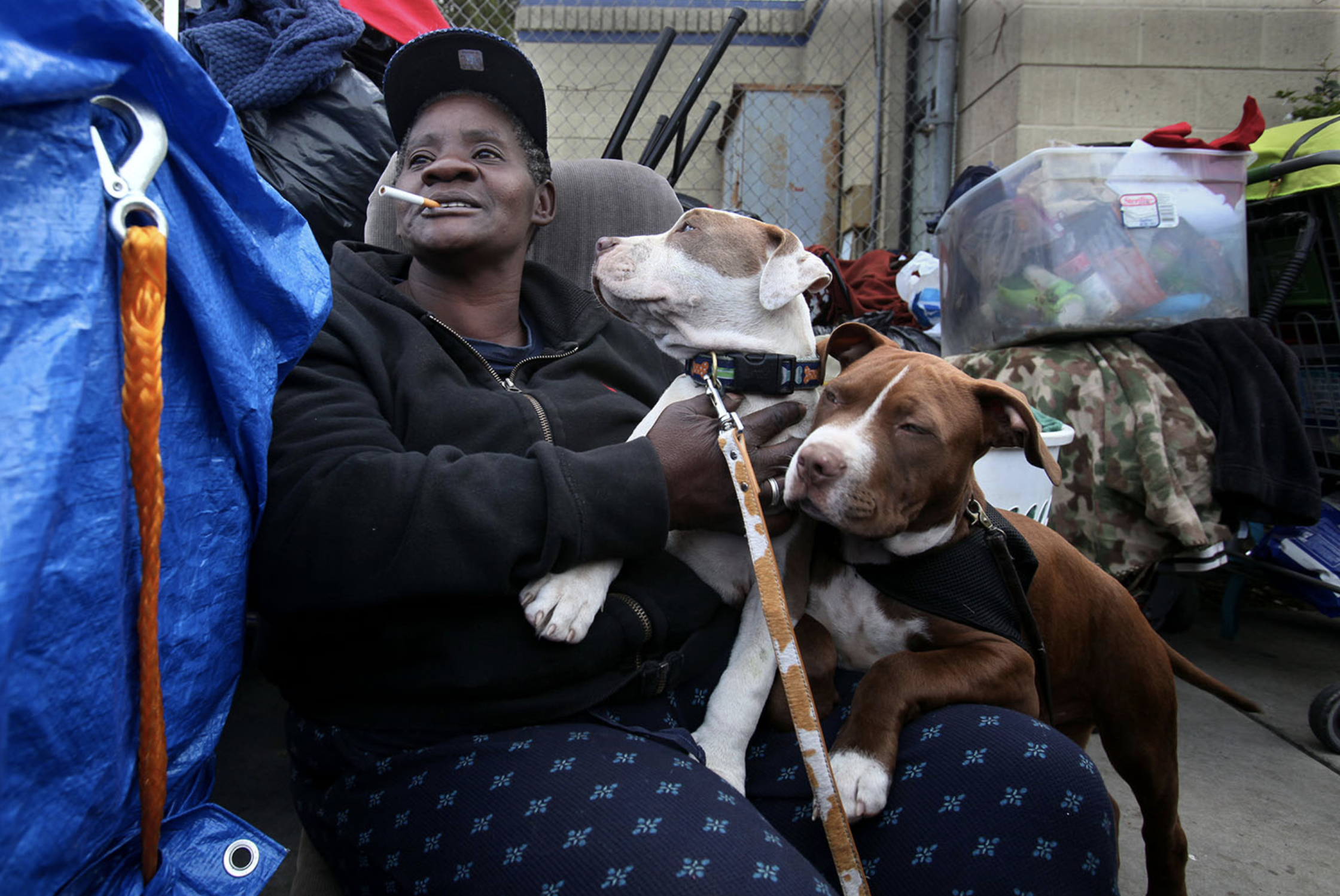
Cookie, 52, came to San Diego from Mississippi with her family when she was six years old. Her mother did janitorial work at San Diego State University. Cookie went to Pacific Coast College to study office management and home health care, one of her proudest achievements. Then she had three children; putting her career on hold. As a single parent, it was hard to juggle managing children and earning a living. Her kids found their way into quick money on the street. And while she kept up her part time work doing in-home health care she spent more and more time on the street herself just to be near her boys. It’s been a while since she has had work. Now she dog-sits for cigarettes and money but is happy to be near her boys.
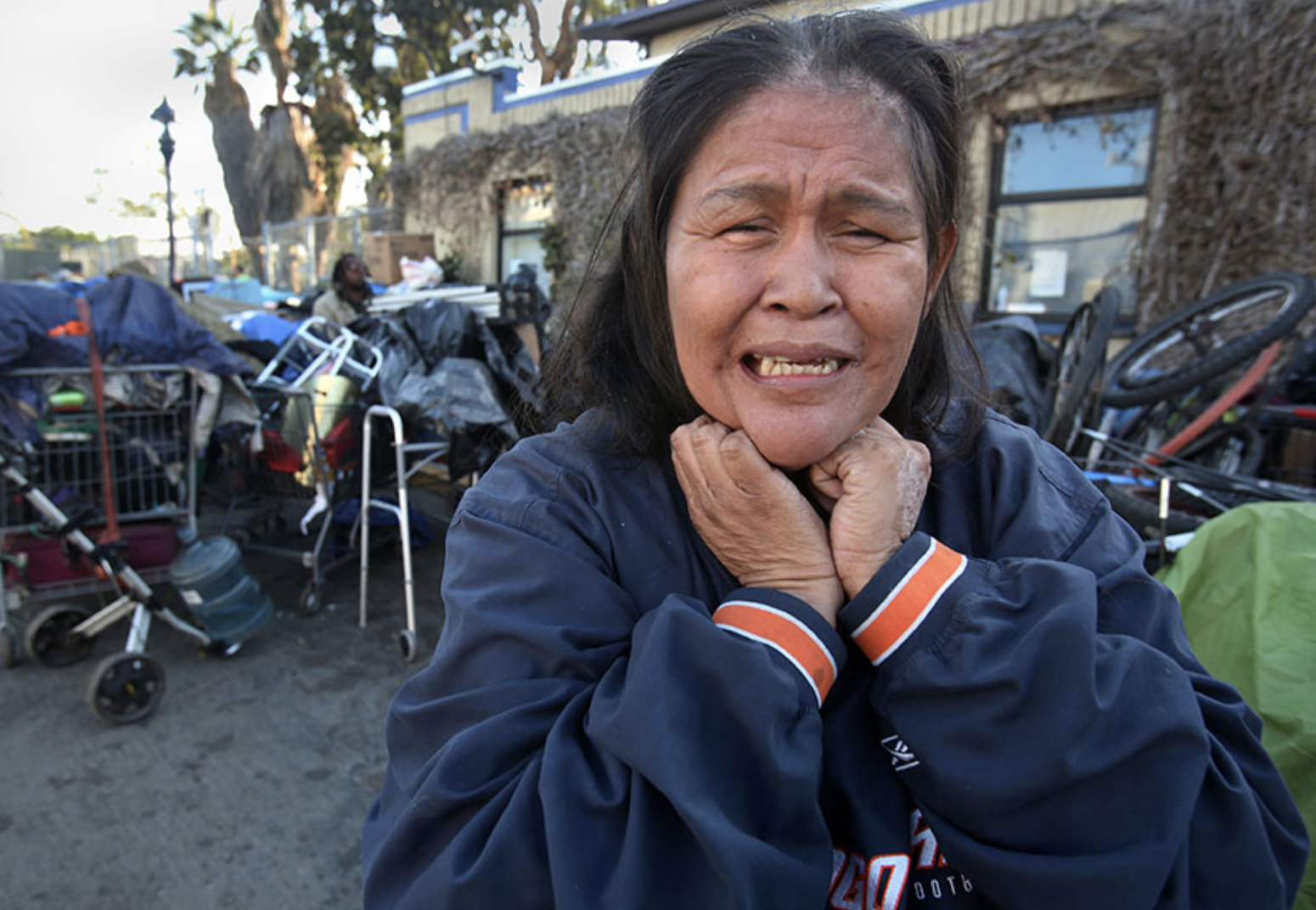
Joanne Williams, 47, was born in Canada, given up for adoption as an infant, along with her siblings. She was taken in by a couple in Chicago, who helped her keep in touch with her siblings, and learn about her mother, who died at age 35 of lead poisoning. She followed her adoptive parents’ example and joined the U.S. Navy at age 19. In Seattle 20 years ago she was hit by a drunk driver, suffering major injuries and ending up in a coma. While working as security at Coachella she met her now-husband Eric, also a security guard. The couple are staying in a motel right now, paying by the month. On this early morning, she came to me and said in a shaky whisper, “I need to talk to someone. I was assaulted last night walking home from work.” Her eyes moved to the right, where dozens of people were gathering their tents and other belongings. “He’s here.” An hour later her husband arrived. He and a few others walk down the block to administer some street justice.
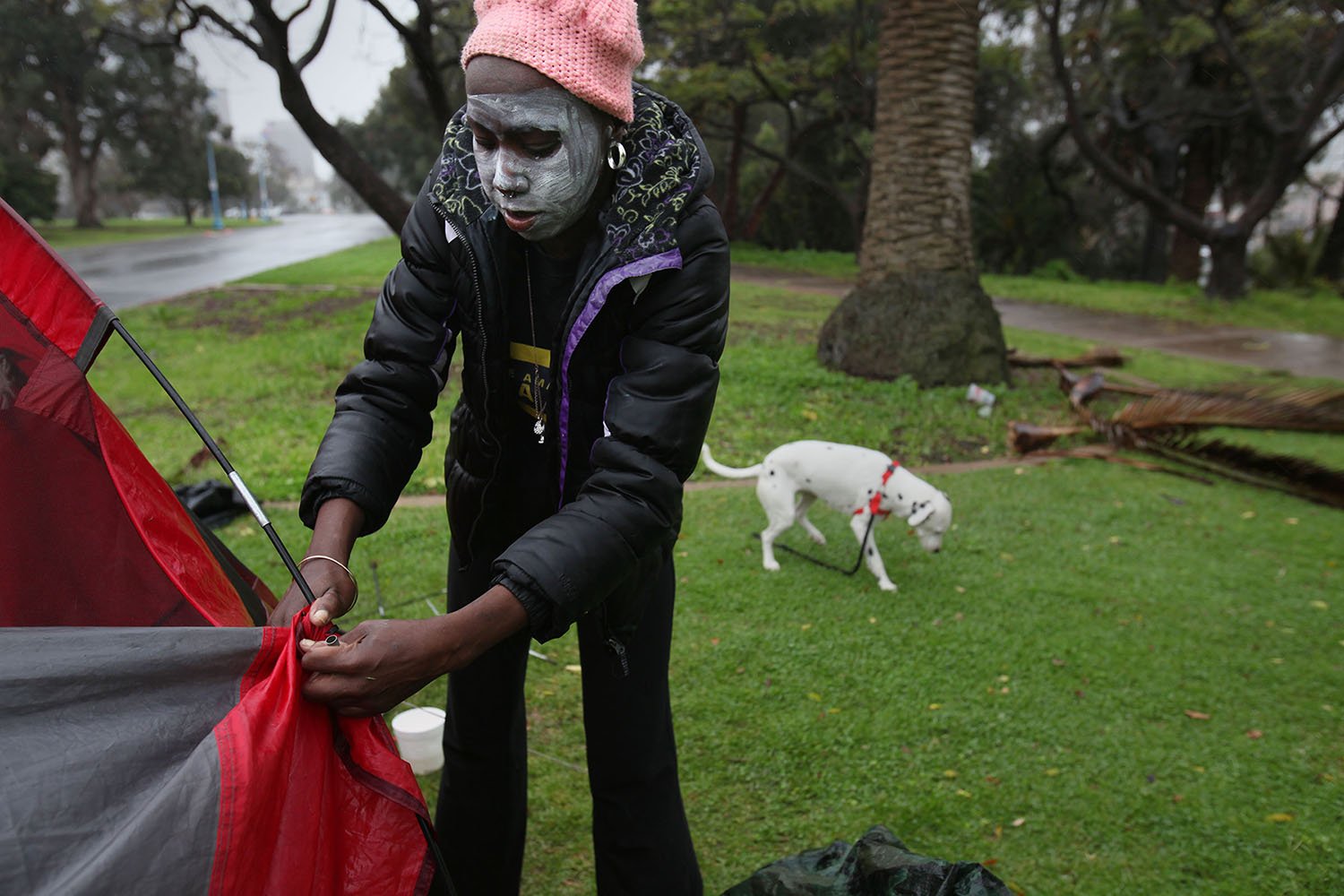
Honey (Lakeesha), 39, and dalmatian puppy Jalila share a tent in the park. They have saved each other’s life, at least once. Honey moved into the park at a low point when she and her husband split up and her part time job faded away. The recent heavy rains wreaked havoc with her tent, sending it spinning in different direction, soaking all her belongings. As a single woman in the park, she is vulnerable. She has had many things stolen from her, including a nice bicycle. She’s been sexually assaulted more than once. But she can’t get the police to follow up on the charges. She has seen her rapist joking around with police. It wasn’t until she presented evidence they would even take her report.
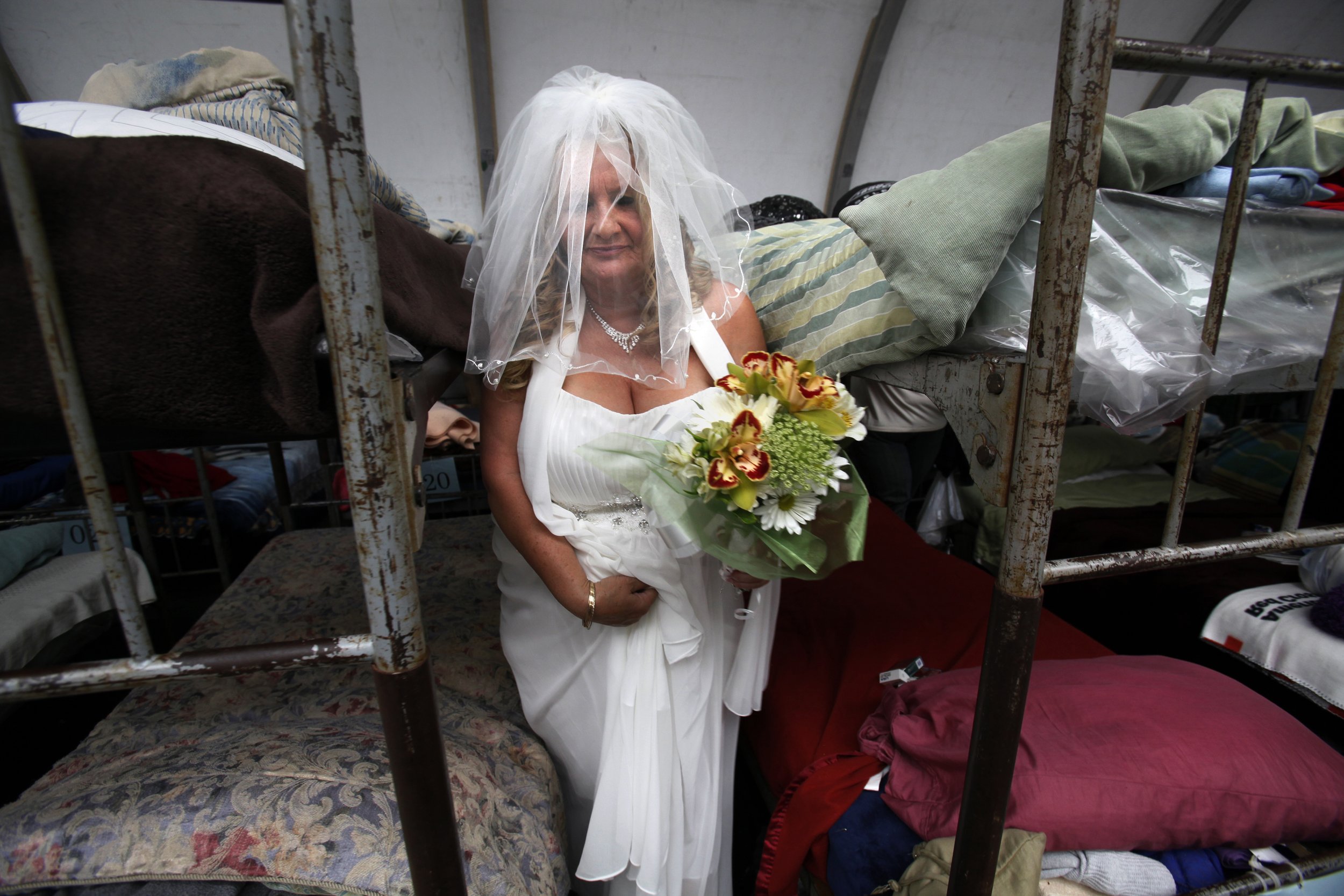
Sheila Sanchez emerges from among the bunkbeds after gathering her flowers, in preparation for her wedding at the city's homeless shelter. The bride found her dress at a discount store and another tent resident bought her bouquet. She met her betrothed at another shelter and they dated for several years. The ceremony was performed by a Seventh Day Adventist priest and a nonprofit donated enough money for them to spend their wedding night in a hotel instead of on separate cots in a congregate shelter tent.
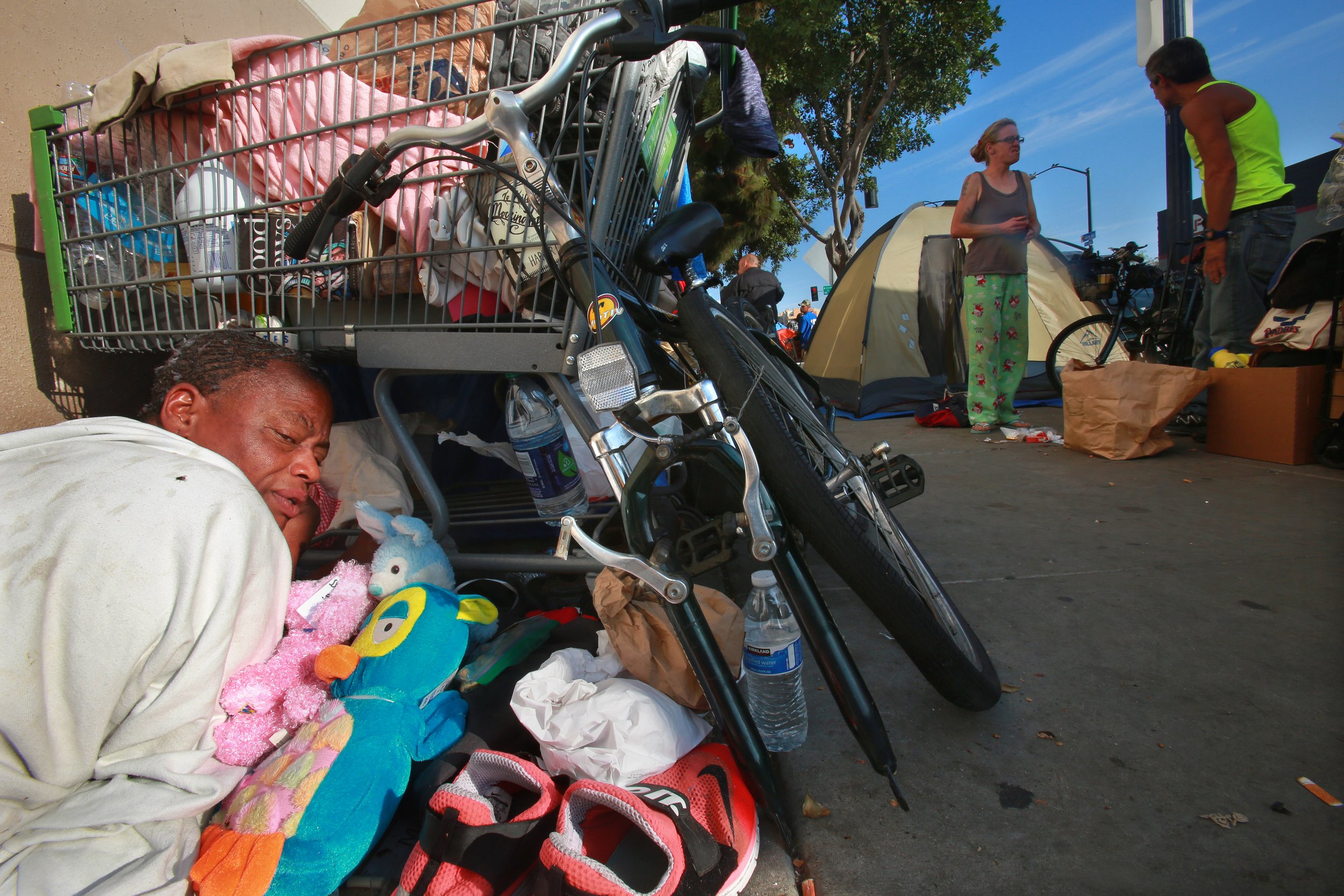
Juanita Sams, 47, sleeps on a bed of cushions sandwiched between her two shopping carts in East Village. She raised four children, she said, and has done a lot of volunteer work. She hopes to eventually get a job being a nanny because she loves working with children.
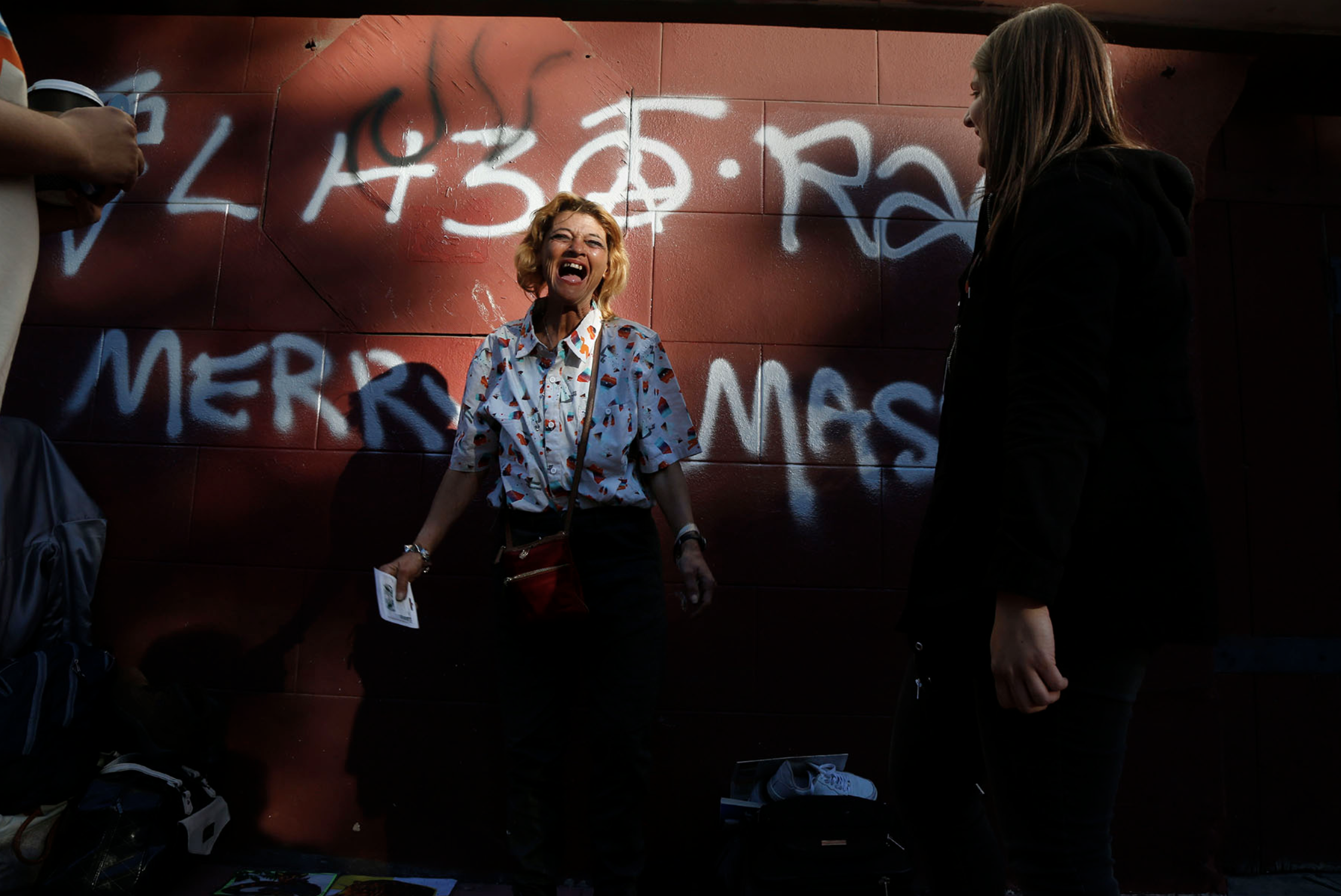
Angel Parrish, 58 was born in Aurora, Illinois. Her mother was French, had long black hair, green eyes, and she was Jewish. Angel’s father was the complete opposite, so there was always a bit of a religious-culture war going on in their home. Angel has been an interior decorator, a painter and a sculptor, and today she does paintings and drawings that she sells on the sidewalk, in Hillcrest. People regularly gift her coupons for Starbucks and Jack-in-the-Box or purchase her drawings. Angel floats in and out of recovery facilities.
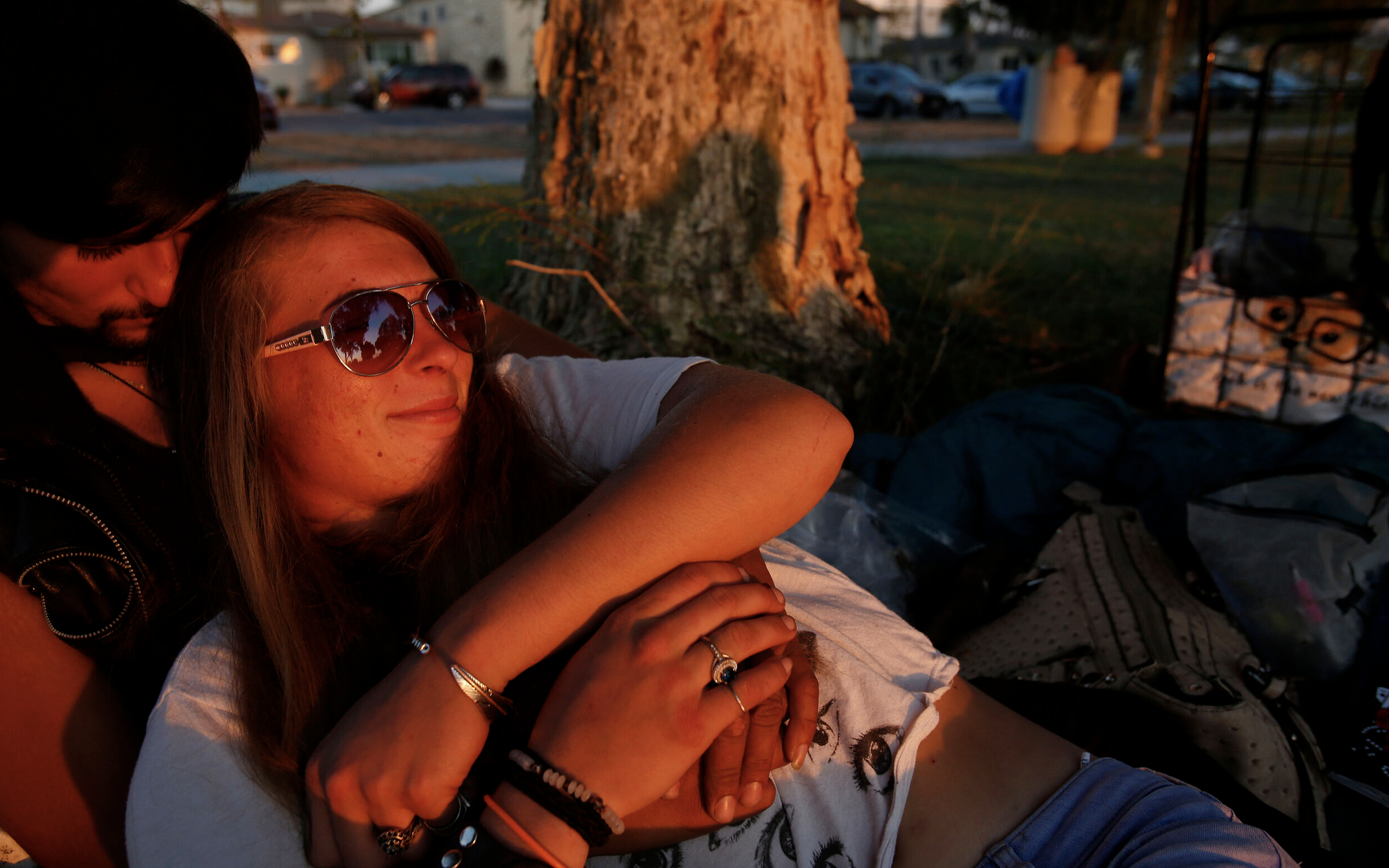
When the pandemic lockdown restrictions were first enacted in March, Rose and her boyfriend were suddenly locked out of the park they called home. Her adoptive parents, a gay male couple, moved from Santa Monica to San Diego while she was in her junior year of high school, poised to be the captain of her golf team, and lauded for her talent on the viola. She was about to become the first person in her birth family to graduate high school. She was excited about the golf scholarship with the title of having the longest drive for a female under the age of 15 in California. When the family moved to San Diego, however, there was no golf and her parents sold her viola. She moved into the park with her boyfriend and makes a living hauling other people’s rubbish to the dump, ocassionally selling discarded items on eBay.

Sirprina is proud of her three grown children, all who live in Chula Vista. As a single mother working long hours cleaning homes and office buildings to make sure they all went to school and were well-fed, she feels a big part of her life was successful. That’s why, even though being homeless this past year and a half has been difficult, she feels hopeful about life in general. All those years at physical labor resulted in two hip surgeries and vascular necrosis. So she has trouble getting around. Sleeping on a sidewalk doesn’t make it any easier but she meticulously sweeps up around her sleeping space, carefully organizing her belongings before seeking shade and food for the day.
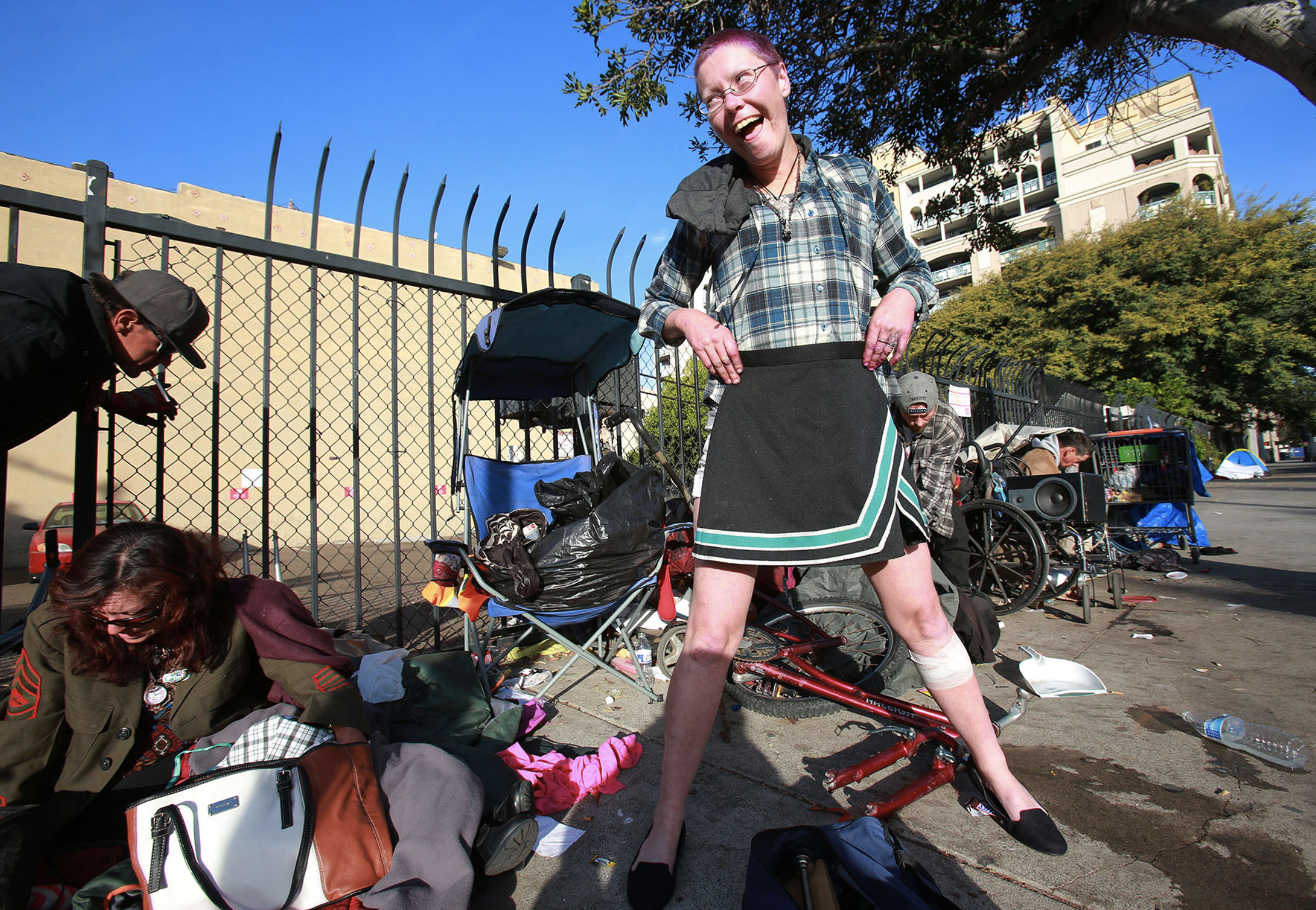
Cat shows off a new, donated skirt she plans to wear all day if she can find enough privacy to change her clothes. Born in Yuba City, Cat was one of 13 siblings that all went into foster care. Cat says she’s half Irish and half Cherokee. Over the first 15 years of her life, she lived in 15 different homes. The families she lived with between ages three and eight were the worst, she said. She bounced between make-shift families through her early 20s when she caught a bus out of Yuba City, ending up on the streets in San Diego. Her own two daughters, age five and seven, live with their fathers. Cat’s real name is Etta, for Etta James. With bright purple hair and an outgoing personality, Cat, 29, has been through enough tough times she’s not afraid to live out loud. She’s tired of the homeless being criminalized. “They arrest us if we sit too far out into the sidewalk,” she said. “They call it encroachment, make it illegal, so they can get rid of us. They throw away all our belongings while we’re locked up, then release us in the middle of the night with no money, no blankets, no place to go except right where we were before.” She laments the lack of sanitary places to change clothes, take a shower, even brush your teeth. “How you supposed to get ready for a job interview if you can’t get clean? They want us working right? Maybe they can help make that happen.”